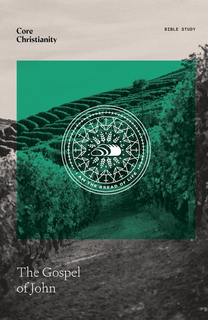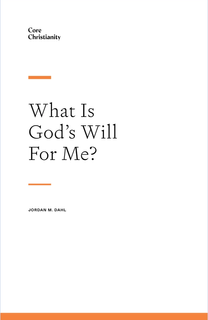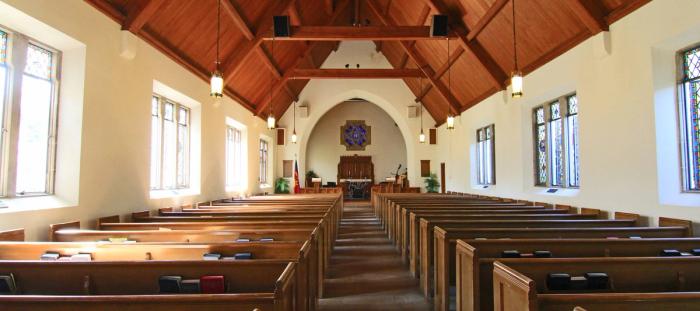God made the Sabbath at the beginning of time. Pleased with all he’d created, he rested on the seventh day and set it apart as holy (Gen. 2:1–3).
God’s work and rest established a pattern for humans. The fourth commandment said that Israel needed to rest from their work on the seventh day because “in six days the Lord made heaven and earth, the sea, and all that is in them, and rested on the seventh day” (Exod. 20:11). Israel must work and then rest because that’s what God did.
Why, then, do Christians rest and worship on Sunday, the first day of the week?
When Christians practice the Sabbath, they follow a different pattern. They don’t work and then rest. They rest first. That’s because they follow the pattern of the new creation, which began when Jesus Christ rose from the dead—on the first day of the week, not the seventh.
Jesus completed all the work needed to save us (John 19:30). His work earned our rest. This is the gospel. So, when we worship him and rest on Sunday, we embrace his finished work. We receive and proclaim his grace. Then we work Monday through Saturday knowing we can earn nothing from God through our obedience in the tasks he gives us.
Why Did God Create the Sabbath?
God made humans in his image (Gen. 1:27). He gave Adam and Eve work to do, so that they would reflect his creativity and goodness. And if God finished his work and rested, then his people, we expect, were meant to do the same thing: work and then rest. The fourth commandment confirms this (Exod. 20:8–11). God called Israel to imitate what he did in creation.
And just as God set the seventh day apart, Israel must regard the Sabbath as holy (Exod. 20:8). The Sabbath wasn’t just a time for physical rest. It pointed to spiritual rest. If Adam and Eve had obeyed God, they would have earned an eternal and honored place in God presence. They would have entered his holy rest. They failed. They disobeyed God’s instructions. But the fourth commandment still points to that ultimate goal.
Why? Didn’t Adam and Eve’s sin put this hope of spiritual rest with God out of reach? Could Israel somehow still earn this eternal reward?
No.
On one level, the Sabbath reminded them of God’s natural law—the moral order built into creation. Getting what you deserve—working and then resting—still provides the basic structure of earthly moral life. The Sabbath honored this.
On another level, though, Israel’s Sabbath reminded God’s people of the undeserved blessings they’d received from God. He rescued them from slavery in Egypt because of his promise to Abraham (Gen. 15:1–6), and not because of anything good they had done. As a sign of God’s grace and covenantal love, the Sabbath also pointed ahead. It reminded Israel that God would make a way for his people to enter his eternal rest.
That’s why, when Jesus came centuries later, he called himself the “lord of the Sabbath” (Matt. 12:8). Israel’s Sabbath pointed to the rest that only Christ’s work could earn for us.
How the Gospel Changed the Meaning of Time
Jesus fulfilled the terms of God’s covenant with Israel. He obeyed the law and, for our sins, suffered the curses of the law. He earned what Adam failed to earn and paid the price for the sin of Adam and Eve and all their children (Rom. 5:17). He endured the wrath that we deserved.
When he rose from the dead, a new creation began.
That’s why, from the time of the apostles, Christians have rested on the first day of the week (Acts 20:7, 1 Cor. 16). Jesus changed the meaning of time. By worshipping on the first day of the week, we’re reminded of the gospel—that through Christ’s work, we’re already justified. God forgives our sins and gives us Christ’s righteousness. The new creation—eternal life and rest with God—has been earned for us. We rest first.
God looks at us and finds satisfaction in the finished work of Christ.
That means that our work during the week means something different as well. God frees of us from the need to justify ourselves through what we do. Our most impressive accomplishments can’t give us any more assurance of God’s approval. Throughout the week, we work to serve others—our families, our clients, and our employers. But we can’t earn anything.
Nothing we do can change our standing with God. That’s what our Sunday Sabbath tells us.
In more theological terms, the Sabbath tells us that sanctification now follows justification. In the original creation, sanctification comes first. We work and then are justified if our work meets God’s standards. In the new creation pattern, justification comes first because God’s standards have been met by Christ. Through the gospel, we’re justified. Our sanctification—the process of becoming like Christ in our character—follows as a necessary result of our justification.
Sanctification comes out of our deep, spiritual rest in Christ through the gospel. It only comes after we know God’s unchangeable covenant love for us.
Just as God was satisfied with his work of creation, he was satisfied with Christ’s work of redemption. Nothing else needs to be done.
So, we rest first. Then we work. We receive God’s grace through his word and sacraments, and then go out into the world to serve. Without anything to prove.
We worship on Sunday because of the gospel.
Waiting—and Longing—for Perfect Rest
Through faith in Christ, we have peace with God. We know that we’re justified and secure in him. Yet, in this life, we still suffer, struggle, and experience the curse God placed on human work (Gen. 3:17–19). Spiritually, we’re new creations (2 Cor. 5:17), but Jesus hasn’t yet returned. Our bodies haven’t been made new.
We live in two ages at once—the creation order and the new creation order.
So, the Christian Sabbath, like Israel’s, still points ahead. We rest and worship on Sunday because Jesus has risen. But when we too have risen from the dead on the last day, all of life will be Sabbath. We’ll enjoy God’s rest on all days.
The book of Hebrews says, “Let us strive to enter that rest” (Heb. 4:11). The ultimate rest still lies before. We strive to enter it not as ones who can earn it. We strive as those who persevere by the faith that the Holy Spirit gives us and who long for perfect rest in God’s presence.
“I Will Give You Rest”
Jesus said, “Come to me, all who labor and are heavy laden, and I will give you rest. Take my yoke upon you, and learn from me, for I am gentle and lowly in heart, and you will find rest for your souls. For my yoke is easy, and my burden is light” (Matt. 11:28–30).
When we practice the Sabbath, we come to him. We lay our burdens on him and find rest for our souls. We’re strengthened by our worship because we know, in the week of toil ahead, we have an indestructible peace.
We come to Christ for Sabbath rest. Then, in his grace and strength, we work.
What Does the Bible Say?
- The Sabbath in Creation: Gen. 2:1–3; Exod. 16:22–30; Mark 2:27
- The Old Covenant Sabbath: Exod. 20:8–11; 31:12–18; Deut. 5:12–15; Matt. 12:1–14
- The New Covenant Sabbath: John 20:19, 26; Luke 24:36; Acts 2:1; Acts 20:7; 1 Cor. 16:1–2; Heb. 4:1–11










